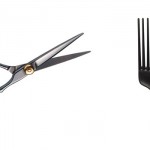
Adopting a healthy eating habit after child birth can be difficult because it requires a level of discipline most new mothers are just not ready to follow. During this period, patience is necessary in order to avoid feeling stressed in addition to caring for a new born. Pacing yourself is needed all right, however, it is important to understand that your body requires the extra energy and fluids, especially water, to produce enough milk for your little one. The question now is: How do you maintain a healthy diet that doesn’t affect your milk supply and lower your energy during this period?
The answer would be wholesome foods, which should be the preferred choice at this time. What you’ll need to include in your diet everyday are those rich in protein, calcium, vitamin C, iron, greens, omega 3s and DHA-rich foods. We’ve compiled a list of foods that contain all of these nutrients and how many servings you should consume in a day.
Calcium – Spinach, legumes, dried fruits, dairy products. You need 5 servings per day.
Protein – Fish, eggs, lean meat, chicken, nuts and seeds, legumes (baked beans, lentils, chickpeas) and dairy products. You need 3 servings per day.
Vitamin C – Broccoli, strawberry, orange, sweet pepper. 2 servings are needed per day.
Iron – Spinach, beef, oysters, lentils and tuna. 1 serving is needed per day.
Leafy greens – Spinach, kale, collard greens, arugula. You should have 3-4 servings per day
Omega 3s and DHA-rich foods – You need about 8 to 12 ounces of low mercury fish. Seafood and fish such as salmon, tilapia, shrimp, crab, catfish and scallops provide omega-3 fats and protein that contribute to a heart-friendly diet.
It is important to note that rigorous dieting is not recommended at this time because breastfeeding alone can help you burn up to 500 calories a day; any additional reduction in calories can potentially lower your energy as well as milk supply.






